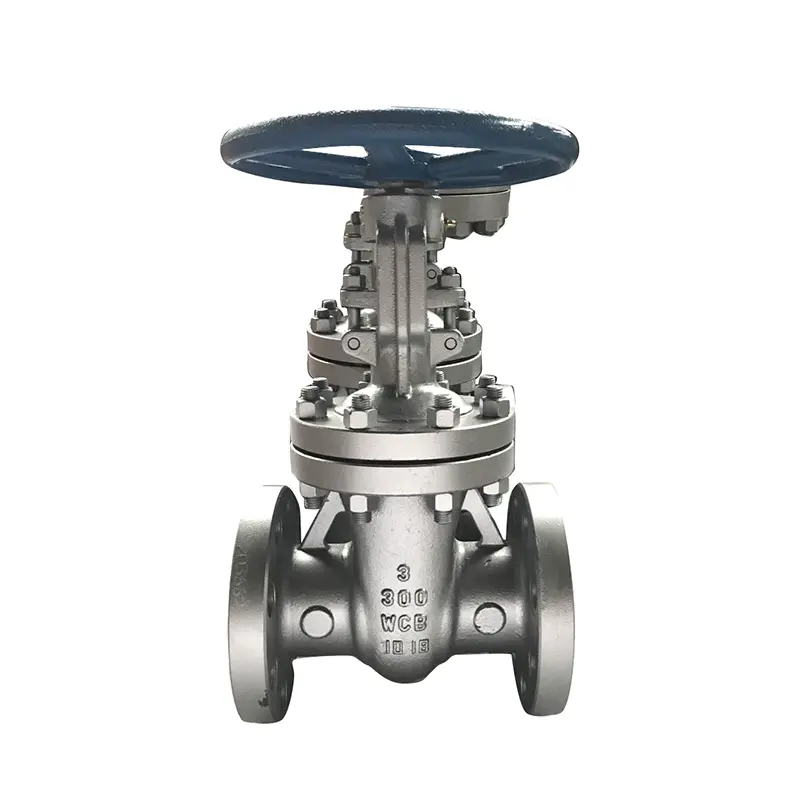What Are Gate Valves and Why Are They Widely Used?
2025-07-08
In the world of industrial piping systems, gate valves play a critical role in controlling the flow of liquids and gases. Known for their simplicity, reliability, and durability, gate valves are essential in industries such as oil and gas, water treatment, power plants, and chemical processing. But what exactly is a gate valve, and why is it so widely used?
What is a Gate Valve?
A gate valveis a mechanical device used to start or stop the flow of fluid in a pipeline. It operates by raising or lowering a gate (a flat or wedge-shaped barrier) inside the valve body. When the gate is fully lifted, the fluid flows freely; when the gate is lowered, the flow is completely stopped.
Gate valves are primarily used in applications where a straight-line flow and minimal restriction are needed. They are not typically used for flow regulation but are ideal for on/off control.

What Are the Main Features of Gate Valves?
Full Bore Flow:Gate valves provide unobstructed flow when fully open, resulting in minimal pressure drop.
Bidirectional Sealing:They can seal effectively in both directions.
Durable and Long-Lasting:Made from robust materials like carbon steel, stainless steel, cast iron, or brass, they can handle high pressure and temperature conditions.
Manual or Actuated:Operated by handwheel, gear, electric actuator, or pneumatic actuator.
What Are the Common Types of Gate Valves?
1. Rising Stem Gate Valve:
The stem visibly rises when the valve opens, providing a clear indication of valve position.
Common in industrial applications.
2. Non-Rising Stem Gate Valve:
The stem stays in place while the gate moves up or down inside the valve.
Ideal for underground or space-restricted installations.
3. Wedge Gate Valve:
Uses a solid, flexible, or split wedge to create a tight seal.
4. Knife Gate Valve:
Designed for handling thick fluids, slurries, and wastewater.
Where Are Gate Valves Used?
Gate valves are versatile and used in various industries:
Water Supply Systems:To control water flow in pipelines.
Oil and Gas Industry:In pipelines, refineries, and petrochemical plants.
Power Plants:For steam, cooling water, and fuel systems.
Chemical Processing:For handling aggressive or hazardous fluids.
Marine and Offshore:For seawater and ballast systems.
What Are the Advantages of Gate Valves?
Low Flow Resistance:Minimal pressure drop when fully open.
Tight Shut-Off:Effective isolation of flow.
Wide Range of Sizes:Available in sizes from small pipes to large industrial systems.
Cost-Effective:Affordable for on/off control applications.
What Should You Consider When Choosing a Gate Valve?
When selecting a gate valve, consider:
Material:Should match the fluid type, pressure, and temperature.
Size and Pressure Rating:Must fit the system’s flow and operating conditions.
End Connections:Flanged, threaded, or welded based on installation needs.
Standards and Certifications:Ensure compliance with industry standards such as API, ANSI, or DIN.
Conclusion: Why Are Gate Valves Essential?
Gate valves are fundamental components in fluid control systems, offering reliable shut-off, durability, and efficiency. Whether for water supply, oil pipelines, or industrial processes, gate valves provide a proven and cost-effective solution for controlling the flow of liquids and gases.
Choosing the right gate valve can ensure system safety, efficiency, and long-term performance.


